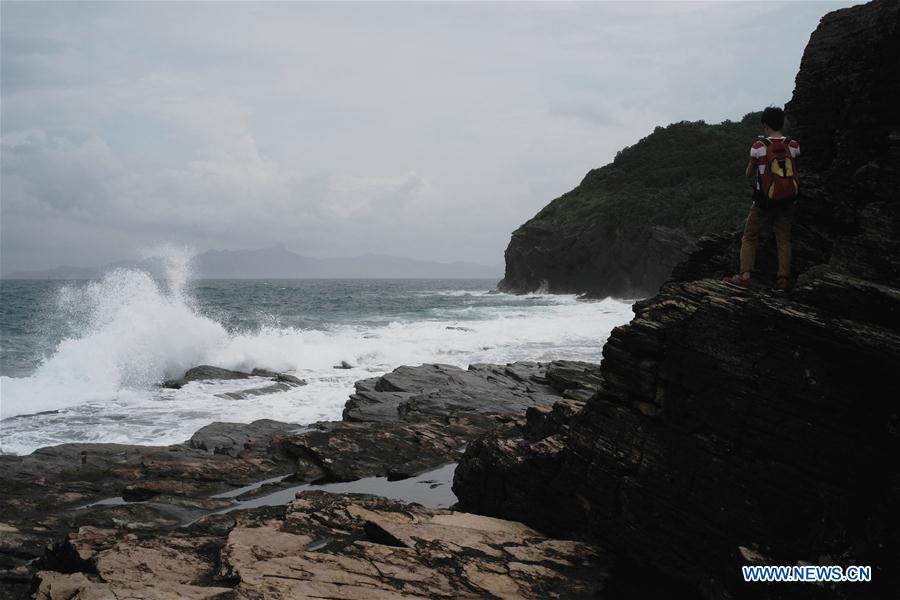
Photo taken on May 13, 2015 shows the workboat of a Chinese archaeological team for the archaeological work of the Shanhu Island No. 1 shipwreck in the Xisha archipelago in the South China Sea.(Xinhua/Zhao Yingquan)
By Xie Meihua, Liu Tian
SINGAPORE, June 2 (Xinhua) -- It is high time for all outsiders to stop meddling and start to play a more constructive role as the South China Sea issue has returned to the right track.
As the parties directly involved have pledged to join hands to make the South China Sea a sea of peace, friendship and cooperation, the International Institute for Strategic Studies (IISS) on Tuesday issued here a report "Asia Pacific Regional Security Assessment 2017" ahead of the Shangri-La Dialogue opened here in the evening. The report once again pointed fingers at China and described China as the potential threat in the South China Sea.
The report said "considerable security challenges for the United States and its regional allies and partners will persist" as China could deploy "military personnel full-time" in the South China Sea.
The report, citing so-called independent strategic assessments, noted that China could considerably increase its ability to interdict military overflight and navigation in the South China Sea.
The report hyped up the tension in the South China Sea that has already cooled down thanks to strong political willingness, wisdom and sincerity from China and the parties concerned. It ignored the relentless efforts made by China and the parties concerned to solve the issue by consultations and dialogues. The rush, irresponsible and biased judgement in the report is rooted from the cold war mentality.
The efforts made by China and the parties concerned to solve the South China Sea dispute peacefully have been encouraging. China and Vietnam issued a joint communique in January this year, vowing to manage maritime differences and avoid any acts that may complicate the situation and escalate tensions so as to safeguard the peace and stability in the region.
Both countries agreed to seek basic and long-term solutions that both sides can accept via negotiations, and discuss transitional solutions that will not affect each other's stance including the research of joint development.
The two sides also agreed to fully and effectively implement the Declaration on the Conduct of Parties in the South China Sea (DOC) and strive for the early conclusion of a Code of Conduct (COC) on the basis of consensus in the framework of the DOC.
China and the Philippines have decided to put hold The Hague arbitration on the South China Sea delivered in July 2016 and seek to improve bilateral ties. A turnaround has been witnessed in bilateral ties with economic and trade ties yielding substantial results, paving the way for the two sides to hold talks on solving their dispute on the South China Sea.
The talks on the South China Sea issue between China and the Philippines have been inspiring with the two confirming in May this year the establishment of a biannual consultation mechanism (BCM) on the South China Sea.
In a joint press release, China and the Philippines reaffirmed the importance of maintaining and promoting peace and stability, freedom of navigation in and flight above the South China Sea, and addressing their territorial and jurisdictional disputes by peaceful means without resorting to the threat or use of force and through friendly consultations and negotiations by sovereign states directly concerned.
Furthermore, senior officials from China and the Association of Southeast Asian Nations (ASEAN) in May this year reached an agreement on a framework for the COC in the South China Sea.
They said they will continue implementing the DOC and reaffirmed plans to solve disputes via negotiation, manage differences with a regional framework of regulations, deepen maritime cooperation and move forward COC negotiation to safeguard peace and stability in the region.
All these facts are telling the international community that China and the countries concerned are capable of handing issues of common concern without a third party's interference.
China outlined in its white paper in January this year its concept of common, comprehensive, cooperative and sustainable security, explaining the Chinese approach to achieving peace and stability in the Asia-Pacific region, thus China's peaceful rise should be viewed as development opportunities for all its neighbors and partners.
The Shangri-La Dialogue, an inter-governmental security forum held annually by the Britain-based IISS should serve as a neutral platform for defense ministers, heads of ministries and military chiefs, among others, to exchange views on the security and cooperation in the Asia Pacific. Only by this way can the Shangri-La dialogue contribute to mutual trust building, avoid misjudgement and facilitate the ongoing talks on the South China Sea issue.



